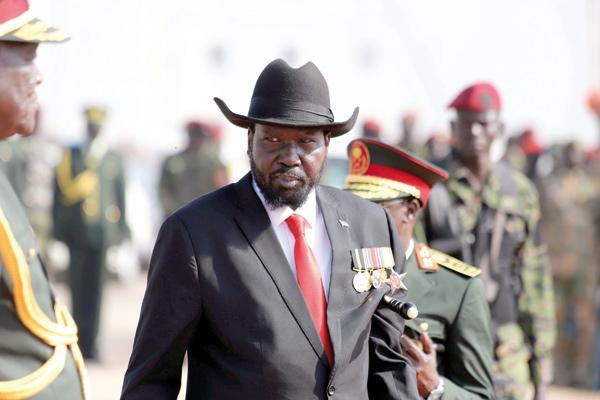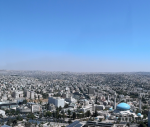You are here
UN reports mass rape, killings, torture in South Sudan, seeks oil scrutiny
By Reuters - Feb 20,2019 - Last updated at Feb 20,2019
GENEVA — UN investigators have identified perpetrators of pervasive rape and killings and torture in secret safe houses in South Sudan, and believe oil revenues have driven much of the violence in its civil war, a report said on Wednesday.
The UN Commission on Human Rights in South Sudan recommended further investigation of evidence that proceeds from South Sudan’s oil-based economy had been channelled to government forces and militias linked to reported war crimes.
The commission said the army, national security, military intelligence, rebel forces and affiliated armed groups had committed serious human rights breaches, and it had drawn up a confidential list of suspects including army and opposition commanders, two state governors and a county commissioner.
Its 212-page report detailed people being held for years and tortured in secret, vermin-ridden detention centres, children being run down by tanks, rape of girls as young as seven, and babies being drowned, starved or smashed against trees.
In some stricken areas, 65 per cent of females and 36 per cent of males may have been sexually abused, according to the report.
Although South Sudan’s main warring parties signed a peace deal in September, widespread violence, especially rape, has continued.
A member of the three-person commission, Andrew Clapham, said it was outraged by reports of further fighting between government forces and the rebel National Salvation Front, which was not part of the peace agreement, in the Yei River area.
“There are thousands of civilians who have been forcibly displaced following a scorched-earth policy in which the parties to the conflict are attacking the villages, torching the homes, killing civilians and raping women and girls,” Clapham said.
‘Must stop’
The United States, Britain and Norway jointly expressed their alarm at the reports of escalating violence in Yei. “These military actions, and the trading of blame, must stop,” they said in a joint statement.
Clapham said that more than 5,000 refugees had reached neighbouring Democratic Republic of the Congo and up to 20,000 people were expected to be displaced by the latest fighting.
The report cited a close connection between oil and the conflict. A law ensuring that South Sudan’s oil-producing regions and communities received 2 and 3 per cent of its oil revenue respectively had triggered a redrawing of provincial boundaries and ethnic conflict.
“We feel the national security services are very much involved in the siphoning off of oil money,” said Clapham.
The Human Rights Council should get to the bottom of the sums involved and where the money was going, he told reporters, noting that health and education spending was “minuscule”.
“If you are involved in oil extraction in that area and you are asked to assist one side or the other, you could be accused of complicity in war crimes. There are council members that we think have a responsibility to look more carefully at this.”
South Sudan is one of the world’s worst humanitarian crises. This year the United Nations needs $1.5 billion for life-saving aid for its population and $2.7 billion for its refugees
Related Articles
GENEVA — South Sudan’s justice minister on Tuesday dismissed UN investigators’ accusations that fighting and gang rape persisted
NAIROBI — South Sudan’s six-month-old peace deal is doomed to collapse unless the sides can settle a string of disputes and bring forme
NAIROBI — South Sudan’s President Salva Kiir has hired an American lobby group run by a former ambassador to block the creation of a co















